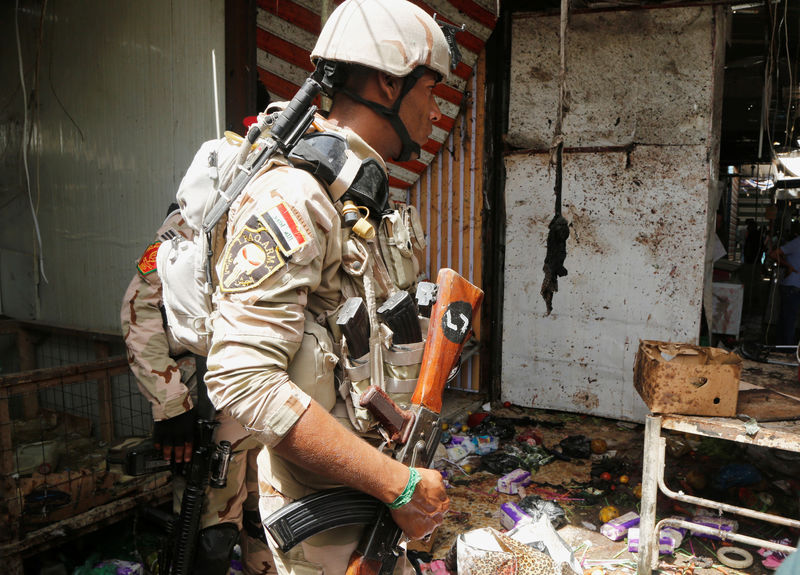(Bloomberg) -- Iraqi Prime Minister Adel Abdul Mahdi asked U.S. Secretary of State Michael Pompeo to send officials to Iraq to work out a mechanism for the withdrawal of American troops, according to his office, as the fallout from the U.S. assassination of a top Iranian general in Baghdad roils ties.
The statement on Friday, citing a phone call the previous day between the two men, suggests that Abdul Mahdi is standing by demands from Iraqi lawmakers for American troops to leave following a killing which threatened to turn Iraqi territory into a proxy battleground.
The Jan. 3 targeting of General Qassem Soleimani, who oversaw Iran’s foreign military operations, outraged Shiite politicians in Iraq, many of whom have close ties to Tehran.
Their majority in parliament was enough to win a vote on expelling U.S. forces, though Sunni Arab and Kurdish legislators boycotted.
Iran’s military then fired salvos of retaliatory missiles as bases in Iraq where U.S. troops are stationed. A Pentagon analysis of the attack suggested the missiles were aimed at unpopulated parts of the bases.
Both sides have since backed away from military action, with President Donald Trump appealing for Iranian leaders to negotiate a peace.
Iranian Foreign Minister Javad Zarif said on Twitter that the missile attack “concluded” Iran’s retaliation for Soleimani’s killing. Even if Tehran refrains from further direct attacks, though, it might still seek reprisals through more covert means, such as attacks by proxy militias or in cyberspace.
It’s unclear how the U.S. will react to Abdul Mahdi’s demand. President Donald Trump responded angrily to the parliament vote, threatening to sanction Iraq and demanding reimbursement for investments made in the country over the past two decades if the government insists on U.S. forces leaving.
Pentagon chief Mark Esper said later that he believes the Iraqi people and lawmakers still want the U.S. to maintain a presence in the country, 17 years after it invaded to oust Saddam Hussein.
Trump escalated tensions with Iran in 2018 by withdrawing from the nuclear accord negotiated by his predecessor, Barack Obama, and reimposing sanctions that have crushed the Iranian economy.
Iran has responded by withdrawing from the atomic deal in phases, while its proxy forces in Yemen, Iraq and Syria are widely seen as having been behind attacks on a range of targets including critical oil infrastructure in Saudi Arabia, a key U.S. ally in the region.
Trump ordered Soleimani killed after a Dec. 27 rocket attack on a joint U.S.-Iraqi base near Kirkuk resulted in the death of an American contractor. The U.S. blamed the attack on an Iran-backed militia and killed its leader in the strike on Soleimani.
The assassinations are the latest test for a nation that has seen almost non-stop upheaval since the U.S. invasion.
Iraqis fed up with corruption and the slow pace of recovery from the wreckage left by the war with Islamic State took to the streets in October for protests that also targeted Iran’s dominance of the country’s politics.
Iraq’s top Shiite cleric on Friday denounced the “repeated violations” of the country’s sovereignty and the government’s inability to deter attacks.
Grand Ayatollah Ali al-Sistani said that no outside power should decide Iraq’s fate.
“The latest dangerous aggressive acts, which are repeated violations of Iraqi sovereignty, are a part of the deteriorating situation” in the region, he said, according to his representative Ahmed Al-Safi.
